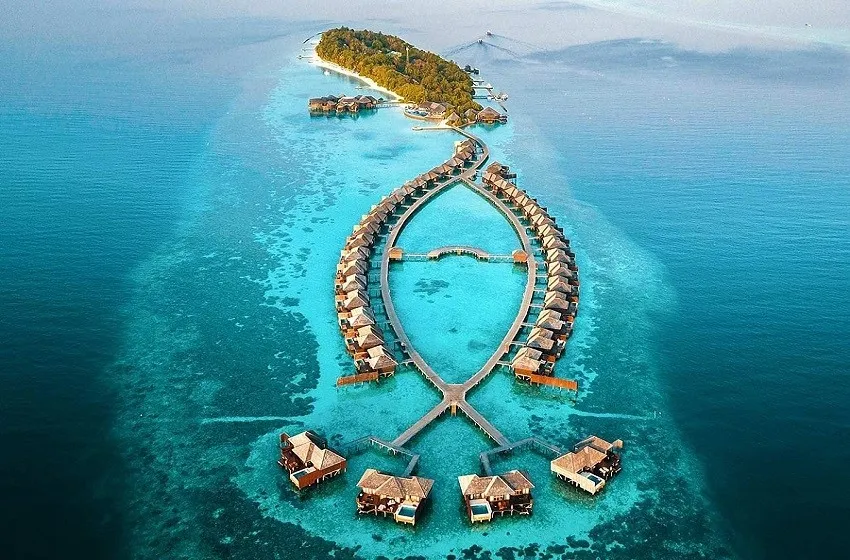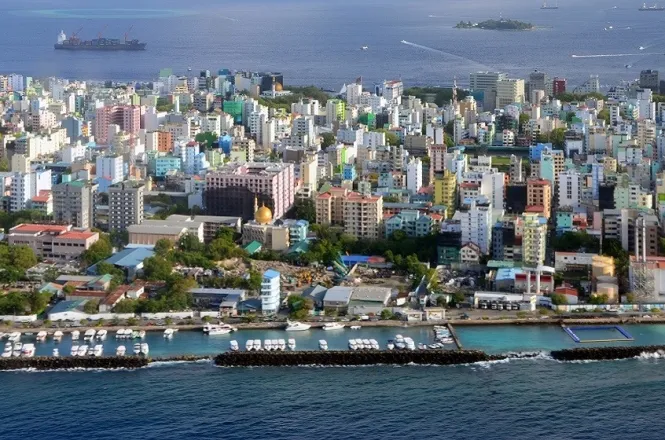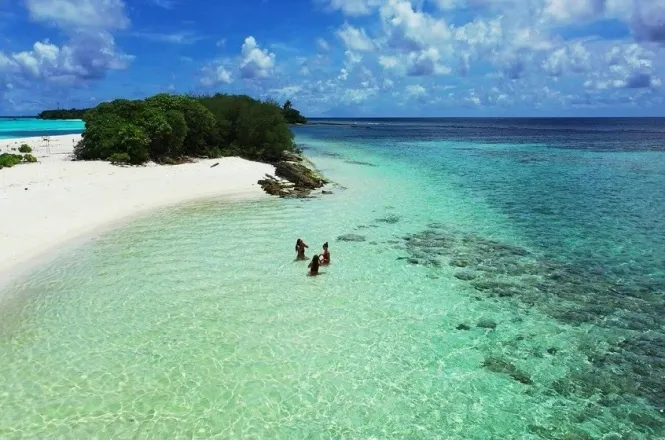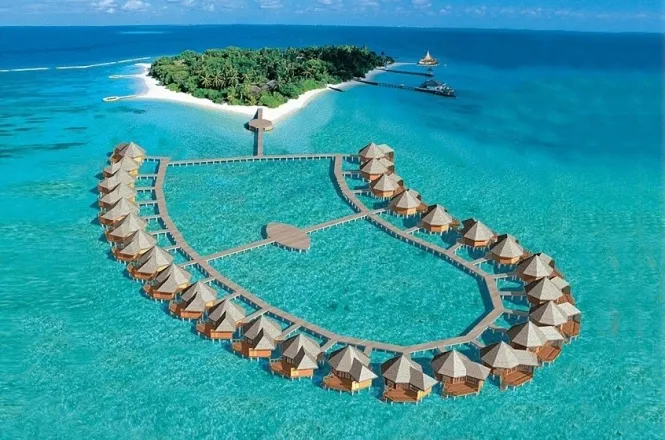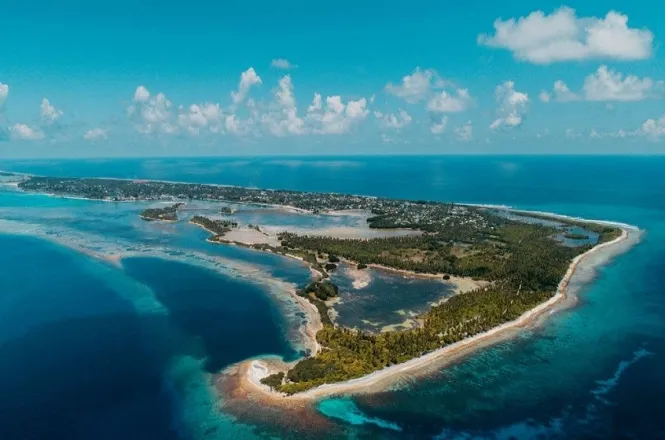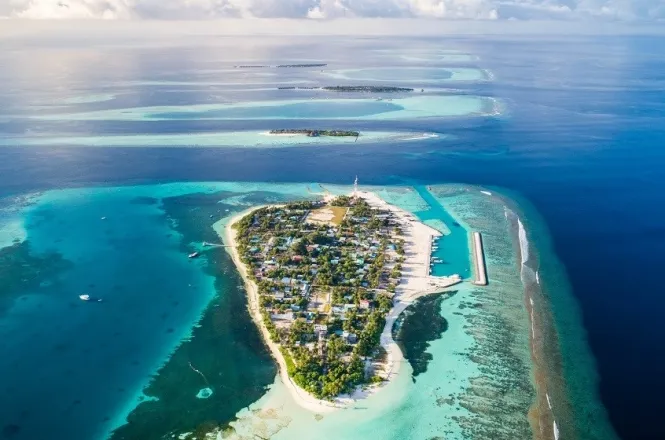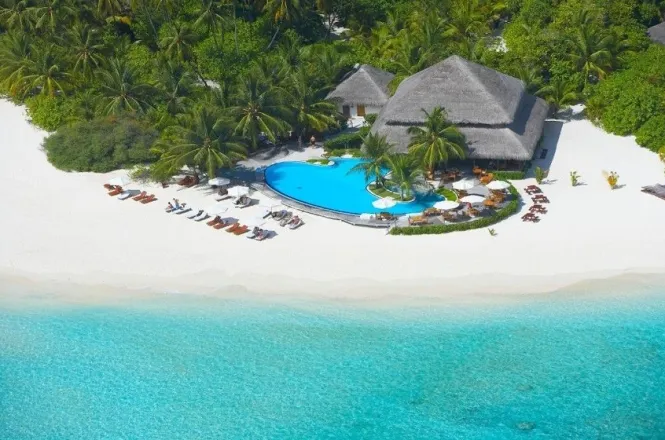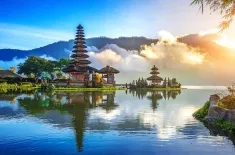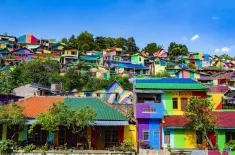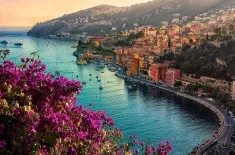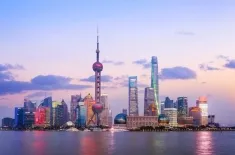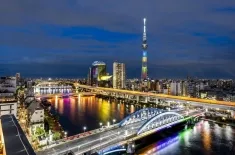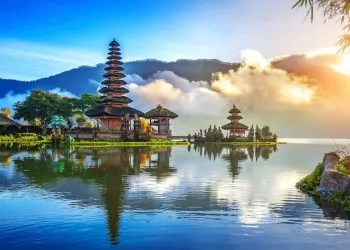Escape to paradise in the Maldives! Discover pristine beaches, crystal-clear waters, and vibrant coral reefs. Experience luxury at exclusive resorts and create unforgettable memories on these tropical islands.
The Maldives, a tropical paradise nestled within the turquoise waters of the Indian Ocean, is renowned for its stunning natural beauty, luxurious resorts, and as a dream destination for honeymooners and travelers seeking relaxation and adventure alike.
Geographical Overview
The Maldives is an independent nation consisting of 26 atolls made up of more than 1,000 coral islands. These atolls stretch over approximately 90,000 square kilometers, making it one of the world’s most dispersed countries. The islands lie southwest of Sri Lanka and India, about 700 kilometers from the Asian continent’s mainland.
Independence and Governance
Formerly a British protectorate, the Maldives gained independence on July 26, 1965. Before that, it had been subject to a long history of colonization, primarily by the Portuguese, the Dutch, and eventually the British. Today, it is a republic, with a president serving as both the head of state and the government. The country’s political landscape has evolved significantly since independence, with increasing strides toward democratic governance.
Religion and Culture
Islam is the official religion of the Maldives, and it plays a significant role in the cultural and daily life of Maldivians. The country follows Sunni Islam, and the practice of other religions in public is prohibited. Islamic traditions and values are deeply woven into the social fabric, manifesting in various aspects such as the observance of Islamic holidays, architecture, and the legal system.
Maldivian culture is a vibrant tapestry woven from the history of its inhabitants and influenced by traders and settlers from the Indian subcontinent, Africa, and Arab countries. This cultural amalgamation is evident in Maldivian music, dance, and art. Traditional music, such as the rhythmic drumming and singing of "bodu beru" (big drum), remains popular. The country's cuisine, featuring rich spices and fresh seafood, showcases influences from Indian, Sri Lankan, and Arabic culinary traditions.
The Maldivian People
The people of the Maldives, known as Maldivians, are predominantly of South Asian descent. The official language is Dhivehi, an Indo-Aryan language closely related to Sinhala, spoken in Sri Lanka. The Maldivian population is relatively small, with around half a million residents, primarily concentrated in the capital city, Malé.
Malé is not only the political and economic center but also the most densely populated city. Malé offers a bustling contrast to the tranquility of the outer islands, featuring a vibrant market scene, historical sites, and modern infrastructure.
Maldivians are known for their hospitality and friendliness, traits that have helped make the country a popular destination for travelers worldwide. The population enjoys a relatively high literacy rate and access to education, contributing to a well-informed and diverse society.
Maldives Tourism
Tourism is the backbone of the Maldivian economy, accounting for a significant portion of its GDP. The Maldives is famous for its luxury resorts that offer over-water bungalows, world-class amenities, and exceptional service. These resorts are scattered throughout the atolls, often occupying entire islands, providing exclusive and intimate experiences for guests.
The natural environment of the Maldives is one of its biggest draws. Pristine white sand beaches, crystal-clear waters, and vibrant coral reefs make it a haven for those seeking both relaxation and adventure. Water sports are a central attraction; visitors can indulge in snorkeling, diving, windsurfing, kayaking, and more. The coral reefs are home to a diverse array of marine life, including manta rays, sea turtles, and colorful fish, making diving and snorkeling unforgettable experiences.
Moreover, the Maldives is increasingly popular as a wellness destination. Many resorts feature world-class spas offering holistic treatments and wellness activities like yoga and meditation. The serene environment complements the wellness experience, providing a peaceful backdrop ideal for relaxation and rejuvenation.
The Maldives' commitment to sustainability is becoming increasingly important, as it faces threats from climate change due to its low-lying geography. Many resorts are starting to adopt eco-friendly practices, such as renewable energy initiatives, coral reef restoration projects, and sustainable waste management to preserve the natural beauty and biodiversity of their surroundings.
Cultural and Environmental Conservation
The Maldives has made efforts towards cultural and environmental conservation. Protecting marine biodiversity is a key focus, with several marine protected areas established to safeguard the ecosystem. The government, along with various organizations, is actively working on climate change mitigation strategies.
Cultural conservation is also critical, as there is a strong desire to preserve the unique Maldivian identity amid globalization and modern development. Traditional crafts, music, and dance still play an essential role in community life and are promoted through cultural programs and tourism.
Future Prospects
Looking ahead, the Maldives aims to diversify its economy beyond tourism to ensure sustainable growth and development. The government is investing in infrastructure, education, and technology to drive economic progress and improve the living standards of its citizens.
However, the biggest challenge remains the threat posed by rising sea levels, a global issue that requires international cooperation and innovative solutions. The Maldives continues to advocate for action against climate change, often finding itself at the forefront of international climate discussions. As one of the world’s most vulnerable countries to climate change, the Maldives is pushing for global efforts to reduce carbon emissions and transition to sustainable energy sources. Domestically, it explores green technologies and strategies to protect its islands and way of life.
Conclusion
The Maldives remains a remarkable blend of natural splendor, rich culture, and a dynamic society. With its breathtaking landscapes and luxurious hospitality, it continues to be a top choice for tourists worldwide. Yet, it is not just a destination for relaxation but also a living case study of the challenges and opportunities faced by small island nations in the 21st century. As it navigates issues of development and environmental sustainability, the Maldives stands as a testament to resilience and innovation, drawing on its rich heritage while looking forward to a sustainable future. Whether you visit for its untouched beaches or its vibrant underwater life, the Maldives offers an unparalleled experience that leaves visitors enchanted by its beauty and spirit.
1. Malé
Malé is the capital city of the Maldives and serves as the political, economic, and cultural center of the nation. It is one of the most densely populated cities in the world, with approximately 150,000 people living in an area of just over 5 square kilometers. Malé is the hub for all governmental and commercial activities and is known for its vibrant street life, bustling markets, and historical sites, such as the 17th-century Hukuru Miskiy (also known as the Old Friday Mosque), which is made out of coral stone. Despite its small size, Malé offers a wide range of services and amenities, including numerous hotels, restaurants, and shops catering to both locals and tourists.
2. Fulhadhoo
Fulhadhoo is a small island located in the Baa Atoll, approximately 100 kilometers northwest of Malé. Unlike the bustling capital, Fulhadhoo is renowned for its tranquility and natural beauty, featuring long stretches of white sandy beaches and crystal-clear turquoise waters. The island is less developed compared to other more tourist-heavy areas, offering visitors a serene and secluded paradise. Its surrounding coral reefs make it an excellent spot for snorkeling and diving, with diverse marine life and vibrant coral formations.
3. Addu City
Addu City is the second-largest urban area in the Maldives, situated at the southern end of the archipelago. It comprises several islands connected by roads, including Hithadhoo, Maradhoo, Feydhoo, and Gan. Addu City has a unique cultural and historical identity, partly due to its former British military presence during World War II. The city offers a mix of traditional Maldivian life and modern influences, with facilities such as resorts, shops, and cultural attractions. The extensive road infrastructure across the islands provides a unique opportunity for land travel, which is rare in the Maldives.
4. Gan
Gan is an island located in the southernmost Addu Atoll and is part of Addu City. It is historically significant as it was once a Royal Air Force base during World War II, with remnants of this era still visible. Today, Gan is known for its airport, which was originally built by the British and is now serving both domestic and international flights. The island is now a popular destination for tourists who are drawn to its rich history, lush vegetation, and beautiful beaches. Gan also hosts several resorts, providing a blend of natural beauty and historical intrigue.
5. Dhangethi
Dhangethi is a small island in the Alif Dhaal Atoll, known for its friendly community and traditional Maldivian charm. It is a popular destination for tourists interested in experiencing local culture and lifestyle. The island offers beautiful beaches and excellent opportunities for snorkeling and diving, with several excursion options to nearby reefs and islands. Dhangethi maintains a balance between tourism and local life, providing guesthouses and local dining experiences that allow visitors to immerse themselves in the island life.
6. Faafu Atoll
Faafu Atoll is one of the administrative atolls of the Maldives, situated towards the center of the island chain. It consists of 23 islands, five of which are inhabited. The atoll is relatively less developed in terms of tourism compared to others, offering a more authentic Maldivian experience. Its capital island is Nilandhoo, which houses significant archaeological sites, including ancient Buddhist ruins. Faafu Atoll is known for its stunning underwater landscapes, making it a captivating destination for divers and snorkeling enthusiasts. The atoll’s quieter pace of life, coupled with its natural beauty and cultural richness, offers a serene escape from the busier parts of the Maldives.
